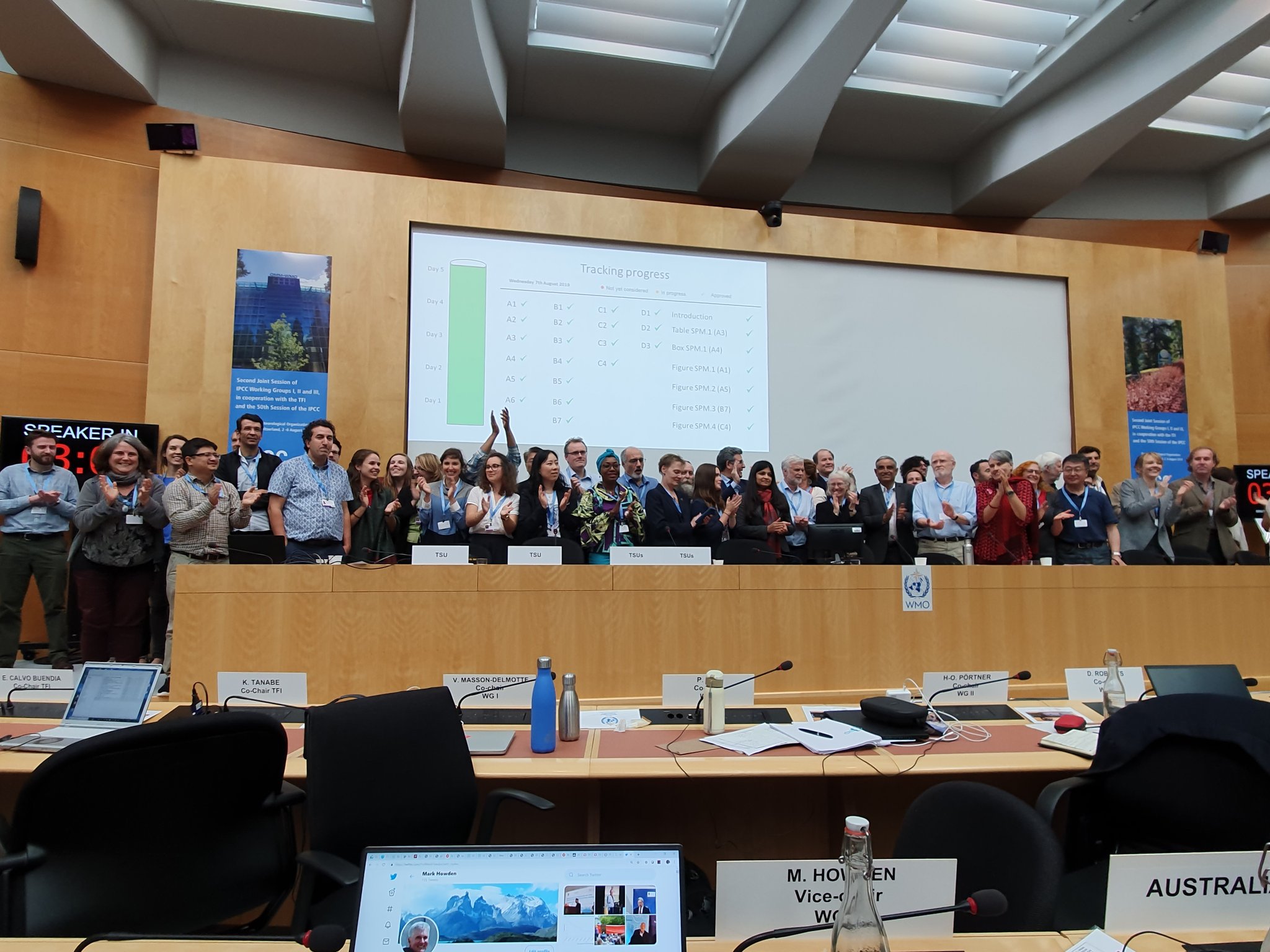On August 7, the Intergovernmental Panel on Climate Change (IPCC) wrapped up discussions in Geneva, Switzerland on their latest Special Report on Climate Change and Land.
About the report:
The report explores how the way we use our land contributes to climate change, how climate change affects our land, and how land use offers solutions to climate change. The report covers a wide breadth of issues including desertification, land degradation, sustainable land management, food security, and greenhouse gas fluxes in terrestrial ecosystems.
The report also spotlights opportunities for carbon sequestration in the land sector – drawing carbon back down out of the atmosphere and storing it in agricultural soils and forests.
It was prepared by 107 leading scientists from 52 countries, and over 7000 papers were assessed in the report. 53% of the authors are from developing countries, making this the first IPCC report to have more authors from developing countries than from developed countries.
For background information on how agriculture and climate change are connected globally and within the U.S, please click here.
Headline Findings:
- Climate impacts on land are already severe. For example, heat waves and droughts have become more frequent and intense in some regions, and food security has already been undermined by affecting crop yields and livestock production, among other changes.
- Looking ahead, warming starting at 2˚C brings the threat of a food crisis, particularly for tropical and sub-tropical regions. Further, the combination of sea level rise and more intense cyclones is projected to jeopardize lives and livelihoods in cyclone-prone areas. Warming has already created wildfire risk, and wildfire is projected to become a high risk at 1.5˚C of warming.
- Early progress toward a far-reaching transformation of agriculture, forestry, and land use is necessary to reach the goals of the Paris Agreement. That transformation needs to be well under way by 2040.
- Agriculture, food production, and deforestation are significant drivers of climate change and produce about 23% of human-induced GHG emissions.
- However, unlike the fossil fuel sector, agriculture also offers a solution to global warming, in drawing carbon down out of the atmosphere and into field soils. But the window of opportunity is closing fast, as the ability of soils to perform this function diminishes as temperatures rise.
- There are many win-win solutions in the land sector, particularly in agriculture and forestry, but some land-based solutions to global warming such as BECCS (bioenergy with carbon capture and sequestration) can force trade-offs with food production if not done thoughtfully or if enacted at inappropriate scales.
Beyond the headline findings, here are some top takeaways:
Impacts of Climate Change
- Climate impacts on land are already severe: lands are degrading from multiple stressors, heat waves are intensifying and becoming more frequent, and rainfall patterns are shifting.
- Lands are also increasingly degraded due to unprecedented exploitation and intensification of land management.
- Climate change is already undermining food security, as evidenced by affecting crop yields, driving lower livestock productivity in some regions, and increasing the risk of agricultural pests and diseases in some regions.
- A food crisis looms if emissions go unchecked, especially in tropical and sub-tropical regions. Rising temperatures may also impact the nutritional value of crops and will significantly reduce crop yields.
- Water scarcity in dry regions will become an increasingly urgent challenge beyond a global temperature increase of 1.5°C.
- Climate change and related extreme weather events can drive migration across borders and within countries.
Drivers of Climate Change
- Agriculture, deforestation, and other land use are significant drivers of climate change and produce about 23% of human-caused emissions.
- Deforestation and food production are often tied together as forests are cleared for agriculture.
- The global food system contributes up to 37% of global greenhouse gas emissions, primarily through raising cattle and other ruminants, cultivating rice, and applying fertilizer to pastures and rangelands.
- Over a quarter of food is wasted or lost, producing emissions during decomposition. Addressing food waste provides an opportunity to both lower emissions and benefit global food security.
Solutions to Climate Change
- Significant emissions reductions in the food system can be secured by reducing food loss and waste and switching to balanced and diversified diets rich in plant-based food and sustainably produced animal-sourced food.
- There are major opportunities to improve agriculture and farming practices to reduce emissions while maintaining or increasing production. Most responses are win-win actions that address climate change while supporting production: agroforestry, soil management, increased productivity, and reducing food loss.
- Unlike the fossil fuel sector, the agricultural sector can play a critical role in drawing carbon out of the atmosphere and storing it in soils. This is an important opportunity as carbon drawdown was deemed mandatory by the IPCC in the 1.5 special report due to delays to date in reducing emissions.
- Addressing and ending deforestation is a critical priority. Forest restoration and reforestation also offer major opportunities to draw down atmospheric carbon and store it in forests.
- There are many solutions in the land sector, particularly in agriculture and forestry, but some land-based solutions to global warming such as BECCS can force trade-offs with food production if not done thoughtfully or if enacted at inappropriate scales.
Importance of Early Action
- The window for making these changes is closing fast. If there is further delay in reducing emissions, we will miss the opportunity to successfully manage the climate change transition in the land sector.
- Only by acting now can the land sector hope to significantly draw down carbon while at the same time protecting food production and preserving biodiversity. Failing to hold temperatures in check would lead to major losses on all fronts.
- The agriculture sector in particular faces a short timeline for successful action. As warming escalates it reduces crop yields, makes adaptation efforts increasing futile, and it undermines the capacity of agriculture fields to store carbon.


